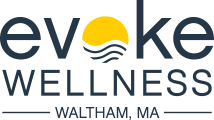Requesting a call is the first step toward recovery. Our team is here to help you 24/7.

Medical Wellness Center














Evoke Wellness Waltham, located outside of Boston, is a safe, supportive environment where clients are treated with respect. They offer day treatment, intensive outpatient programs (IOP), and outpatient programs for men and women who have been struggling with a wide range of addiction and mental health concerns. Their addiction treatment specialists and mental health counselors deliver evidence-based care tailored to each client’s unique needs, helping them heal mentally, physically, and emotionally.
Evoke Waltham takes a comprehensive and compassionate approach to addiction and mental health treatment, promoting healing and stability in the body, mind, and spirit. They offer evidence-based therapies like cognitive behavioral therapy (CBT), acceptance and commitment therapy (ACT), family therapy, and relapse prevention alongside holistic practices such as yoga and mindfulness. Their team of licensed physicians, therapists, and counselors collaborate to provide medical care, personalized support, and a structured environment for recovery. With many staff members in long-term recovery themselves, Evoke inspires hope and resilience.
Evoke Waltham is licensed to treat both co-occurring disorders in clients with addictions and primary mental health conditions. Their mental health therapy services include day treatment or an IOP for anger management, personality disorders, post-traumatic stress disorder (PTSD), and schizoaffective disorder. They use evidence-based approaches such as cognitive-behavioral therapy (CBT), trauma-focused care, and skills training to help clients manage symptoms and improve daily functioning. By addressing these mental health conditions, they empower clients to achieve emotional stability, build resilience, and enhance their overall quality of life.
Evoke Waltham offers a comprehensive rehab aftercare program designed to support individuals in maintaining long-term sobriety following primary addiction treatment. Recognizing that addiction is a chronic condition with enduring impacts, their aftercare services provide ongoing resources to reinforce recovery efforts. Key components include periodic check-ins with healthcare professionals, both in-person and remotely, to monitor progress and address challenges. Additionally, they encourage participation in alumni programs and support groups, such as 12-step meetings, to foster a sense of community and shared experience, which is vital for sustained recovery.

Have Questions? Give Us a Call.